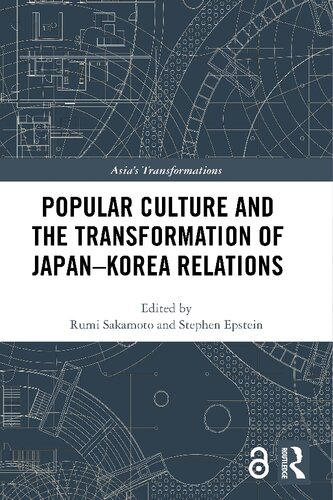

Most ebook files are in PDF format, so you can easily read them using various software such as Foxit Reader or directly on the Google Chrome browser.
Some ebook files are released by publishers in other formats such as .awz, .mobi, .epub, .fb2, etc. You may need to install specific software to read these formats on mobile/PC, such as Calibre.
Please read the tutorial at this link. https://ebooknice.com/page/post?id=faq
We offer FREE conversion to the popular formats you request; however, this may take some time. Therefore, right after payment, please email us, and we will try to provide the service as quickly as possible.
For some exceptional file formats or broken links (if any), please refrain from opening any disputes. Instead, email us first, and we will try to assist within a maximum of 6 hours.
EbookNice Team

Status:
Available4.7
14 reviewsThis book presents essays exploring the ways in which popular culture reflects and engenders ongoing changes in Japan–Korea relations.
Through a broad temporal coverage from the colonial period to the contemporary, the book’s chapters analyse the often contradictory roles that popular culture has played in either promoting or impeding nationalisms, regional conflict and reconciliations between Japan and Korea. Its contributors link several key areas of interest in East Asian Studies, including conflicts over historical memories and cultural production, grassroots challenges to state ideology, and the consequences of digital technology in Japan and South Korea.
Taking recent discourse on Japan and South Korea as popular cultural superpowers further, this book expands its focus from mainstream entertainment media to the lived experience of daily life, in which sentiments and perceptions of the "popular" are formed. It will be useful to students and scholars of Japanese and Korean studies, as well as film studies, media studies and cultural studies more widely.